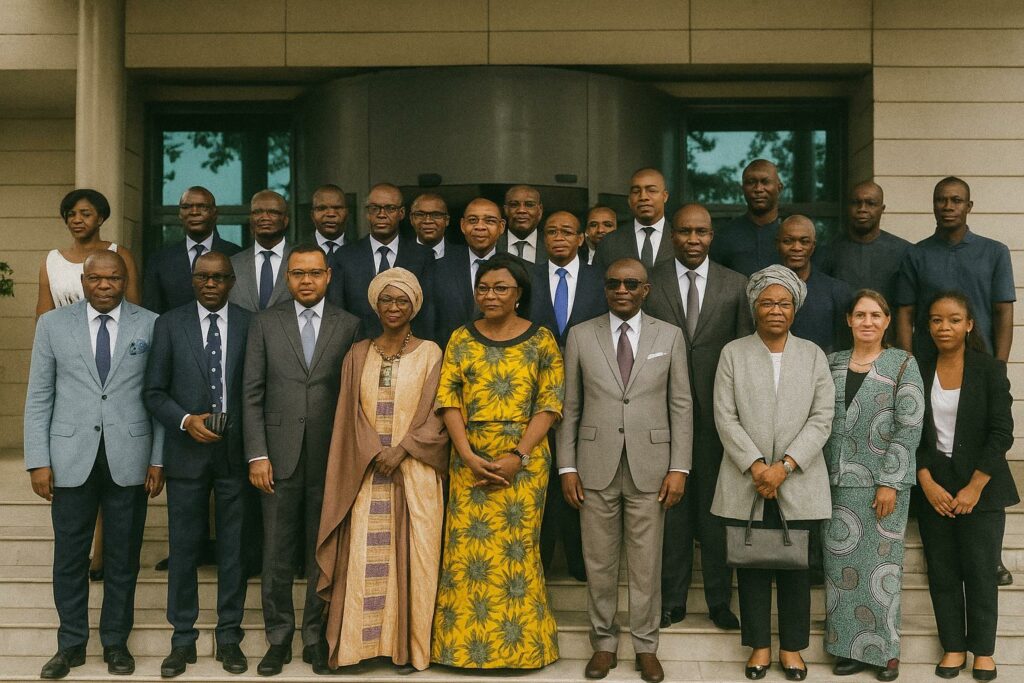A reform agenda revived in Brazzaville
The June workshop convened by the Congolese Ministry of Interior, Decentralisation and Local Development alongside the World Bank might appear routine on the surface. Yet it marks the most explicit attempt since the 2019 Local Government Act to confront one stubborn paradox: while the 2003 Constitution grants municipalities fiscal autonomy, the nation’s ninety urban and rural councils still collect barely ten per cent of the resources they legally control, according to World Bank estimates corroborated by the IMF’s 2024 Article IV report. In the words of Ousmane Bachir Deme, acting World Bank representative in Congo, the objective is to ‘seed a virtuous circle between central administration, devolved entities and citizens’. Behind the diplomatic phrasing lies a blunt diagnosis: local treasuries are anaemic, and the political centrality of hydrocarbon rents remains intact.
Why local coffers stay empty
Three structural weaknesses explain the gap between legal mandates and fiscal reality. First, the assignment of taxes remains ambiguous. Municipalities may impose market fees or property levies, yet collection rights on lucrative sources such as business licences are often reclaimed by line ministries, a phenomenon that Transparency International has labelled ‘vertical pre-emption’. Second, administrative capacity is fragile: only two of the country’s twelve departmental capitals operate a fully digitised taxpayer registry, and audit reports reviewed by the French Development Agency in 2023 found that receipts issued at local counters frequently go unrecorded in treasury books. The third weakness is sociopolitical. After decades of centralised rent distribution, households seldom perceive a visible return on local taxes. A survey by the Congolese Observatory of Public Finances in Pointe-Noire last year showed that barely 27 per cent of respondents trusted municipal authorities to spend revenues honestly.
The World Bank’s proposed toolkit
Drawing on comparative experience in Côte d’Ivoire and Rwanda, the Bank’s governance unit is advocating a four-pillar roadmap. Officials familiar with the draft speak of a legal clarification that would enshrine a negative list of taxes reserved for the centre, leaving all others to municipalities; the creation of an interoperable fiscal cadastre using satellite imagery; performance-based grants whereby councils hitting collection targets receive matching funds; and finally a social contract campaign aimed at demonstrating quick, visible improvements such as street-lighting or primary-school refurbishments. While none of these instruments is revolutionary, evidence from the African Development Bank shows that coupling them can raise own-source revenues by up to 35 per cent within three years, provided political buy-in endures.
Political economy headwinds
Reformers acknowledge that technical fixes alone will not neutralise entrenched patronage networks. Senior officials in Brazzaville privately concede that certain revenue streams, notably fees on informal markets, are vital to local political machinery around mayors allied to the ruling Parti Congolais du Travail. Shifting these earnings into traceable accounts could upset fragile loyalties. Moreover, the petroleum downturn of 2020 has left the central government reluctant to surrender any fiscal room, despite President Denis Sassou Nguesso’s rhetorical commitment to decentralisation. The Finance Ministry has already signalled that any transfer of taxation powers must be ‘progressive and conditional on rigorous audits’, language that critics read as a delaying tactic.
Opportunities in digital leapfrogging
Not all currents are adverse. Congo’s mobile-money penetration reached 46 per cent in 2023, according to GSMA data, opening avenues for low-cost tax payment platforms. In neighbouring Gabon, a similar system piloted with BCEAO support increased compliance among market traders by 18 points in just twelve months. The World Bank is reportedly negotiating with two fintech providers to replicate that model in Brazzaville’s Ouenzé district. If successful, the rollout would enhance transparency and chip away at the cash opacity on which intermediaries thrive.
Building trust through visible dividends
Ultimately, the sustainability of fiscal decentralisation rests on a simple reciprocity principle: citizens pay if they see value for money. Political scientist Landry Mabiala, interviewed for this article, argues that ‘the first street repaired with locally funded resources will do more for compliance than any decree’. The forthcoming municipal budget cycle offers a litmus test. The reform plan envisages earmarking a slice of incremental revenue for participatory projects chosen by neighbourhood committees. While modest in scale, such gestures could recalibrate perceptions of local government from distant tax collector to service provider.
A cautious outlook
For diplomats and development partners, the real metric of success will be whether Congo can reverse the current 80-20 ratio between intergovernmental transfers and own-source income by 2030, a benchmark aligned with the African Union’s Charter on Decentralisation. Achieving that target would require annual local revenue growth of roughly twelve per cent in real terms, a tall order amid volatile oil receipts and electoral cycles. Yet, as Séraphin Ondélé, chief of staff at the Interior Ministry, told participants, ‘subsidies alone can no longer buy legitimacy’. His remark captures the crux: revitalising fiscal federalism is not merely an accounting exercise but a question of political sovereignty shared between state and citizenry.

